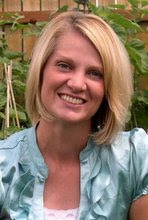
Today’s guest post comes compliments of Krista Lynne Jensen who blogs at Krista Lynne Jensen.
In her own words, Krista is, “an outdoor loving, garden-craving, cuisine enjoying mother of 4, living and loving in Wyoming.”
Krista is currently working on a novel titled The Orchard. You can read a very short excerpt HERE.
Do not put statements in the negative form.
And don’t start sentences with a conjunction.
If you reread your work, you will find on rereading that a
great deal of repetition can be avoided by rereading and editing.
Never use a long word when a diminutive one will do.
Unqualified superlatives are the worst of all.
De-accession euphemisms.
If any word is improper at the end of a sentence, a linking verb is.
Avoid trendy locutions that sound flaky.
Last, but not least, avoid cliches like the plague.
~William Safire, “Great Rules of Writing”
Writing a good story, or even a great one, is a kind of train ride: an adventure, an escape, with momentum and trudged hills and breathtaking descents, worrisome ledges and delicate bridges, some stops to refuel, passengers to board, some to depart, and some to throw off. Sometimes it is sad to reach your destination, sometimes it is a relief… but then the brakes squeal with effort, there is a tremendous lurch, and you are thrown into the re-write.
The ride has been an effort of one kind, but now you must start at the beginning, and tear it apart, piece by piece, becoming a conductor instead of the engineer, making sure everyone has the proper tickets, seeing that the right compartments have been found, that safety precautions are met, that the ride is enjoyed as it is meant to be.
I found the following list of words to avoid in 10 Easy Steps To Strong Writing, by Linda George, The Writer, Jan 2004. When writing that first draft, let ’em fly… then throw ’em from the train.
a little
almost
anyway
at the present time
began to
by means of
certainly
considering the fact that
definitely
even
exactly
fairly
in order to
in spite of the fact
in the event
is
was
were
just
perhaps
probably
proceeded to
owing to the fact
quite
rather
real
really
seem
slightly
so
some
somewhat
sort of
started to
such that
the
usually
very
which
Using these words in narration draws the reader another step away from the story, pulls them out, reminds them of the author lurking behind the pages. Of course, some of these words would be used by characters in dialogue… it is, after all, language. But, find some, and try to rework the sentence, the scene, with as few as possible.
Here is an example of an edit from The Orchard.
“Naughty Jane”, Alisen whispered and smiled wryly as she opened the door and let the cat into the long, narrow mudroom. This was as far as the cat was allowed. She purred around Alisen’s legs as she opened a cupboard and scooped out some food to place in a dish, and filled the water bowl from the utility sink. She crouched down and rubbed Jane’s neck. The purring grew a little louder.
“We should have named you Motor,” Alisen observed.
Now, edited.
“Naughty Jane,” Alisen whispered and smiled wryly as she opened the door to the long, narrow mudroom, as far as the cat was allowed. Purring rose around Alisen’s legs as she scooped cat food into a dish and filled the water bowl. Alisen crouched down and rubbed Jane’s neck. The purring grew louder.
“We should have named you Motor,” Alisen observed.
There are numerous ways this could be edited, but this is the combination I chose. The editors may have other ideas.




